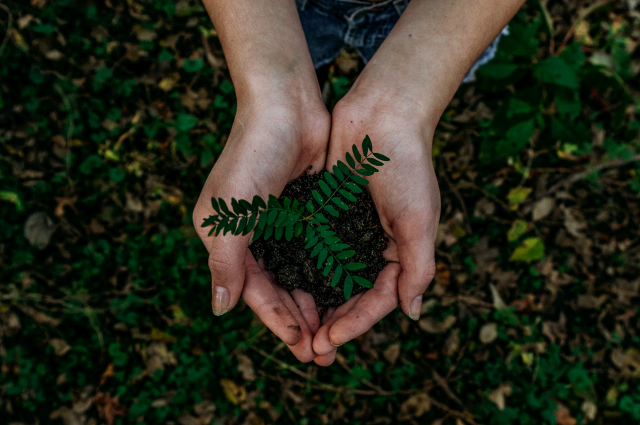The modern world has many problems, foremost of which is our consumerist obsession to acquire more material, regardless of what it does to the environment. Great ecologists have discussed and established the nature of the peril we are in, but the machine of production never relents. It is blind to anything but profit and loss. In such a situation, where each one of us is compelled to play a small role in reducing the impact of our actions, it might be useful to examine our cultural productions. How much environmental awareness do our movies, books, and songs have? If indeed they are doing great in that department, have we really given them the kind of praise and exposure they deserve?
Ecocriticism is a branch of literary criticism, which had its beginnings in the West. An ecocritical analysis discusses a text's environmental dimensions. A 'text' here stands for anything ranging from a song to a book to a TV series with multiple seasons. Texts massively influence the conscience of society, and it is imperative that the audience question its sensitivity towards nature. The principles of ecocriticism can direct a dedicated fan to raise questions regarding the text's social and environmental responsibility, which is a small step one can take in the right direction.
A Little About Ecocriticism First
Ecocriticism is a thriving branch of literary criticism today. The term was coined by William Rueckert in his 1978 essay 'Literature and Ecology'. The essay discusses the need to connect literature to the concepts of ecology. It emphasizes relevancy over elegance in critical discourse and promotes ecocriticism as a field of study that serves a tangible purpose in society. Rueckert attempts to find a balance between literature in its various applications and ecology as a science. The synthesis between science and poetics is treated as something that can result in a solution for the ecological crisis the world faces.
Poems As Plants: The Symbiosis
Ecocriticism treats literature and ecological science as symbiotic concepts that have the potential to be generative, rather than as antagonistic ones. The traditional divide between science and poetics also mirrors that between culture and nature, the distinction that ecocritics like Rueckert are attempting to disintegrate. In 'Literature and Ecology' poems, or literature as a whole, are depicted as an endless renewable energy cycle. A poem is treated as a green plant, stored energy, and a poet, on the other hand, is equated to the natural source of energy: the sun. The energy that is stored in a poem is disseminated when the poem is read, discussed, or taught. The goal of such an energy flow is the accomplishment of motives such as creativity and community.

Photo by Noah Buscher on Unsplash
Analysing Enjoy Enjaami
In order to demonstrate the possibility of a synthesis between literature and ecology Rueckert discusses texts like Whitman's Song Of Myself, Adrienne Rich's Diving Into The Wreck, W. S. Merwin's Lice, and other such works. He connects the themes explored in these works to ecological concepts and other environmental issues. The concepts of ecocriticism can be used to similarly analyze pop songs of the current decade. In today's age, the deterioration of the environment is more pronounced than it had been in Rueckert's time. Thus, the musical productions of this age display an acute awareness of the problem at hand without diminishing any of its nuances. The famous Tamil song, Enjoy Enjaami is one such song. Enjoy Enjaami is a production of A.R. Rahman's Majaa Studio, composed by Santhosh Narayanan and sung by Dhee and Arivu. The song revolves around one of the concepts Rueckert discusses in his essay: the first Law of Ecology- that 'everything is connected to everything else'. It also brings into focus the hardships of marginalized communities and indentured laborers, whose lives are intricately linked to their environment.
The Vision Of A More Co-operative Future

Photo by Cristina Gottardi on Unsplash
Rueckert agrees that the Western way of comprehending nature is anthropocentric and that this has led to a deep divide between nature and culture. He argues that it should rather be symbiotic and that literature should devote efforts into stopping the destruction of the biosphere. He calls for a transformation in culture to foster a more sustainable, ecologically sensitive model of growth. At the roots of such a model is literature, with its creative, transformative energy. In Enjoy Enjaami the makers present a community that celebrates the connections between humans and nature. The song was inspired by the singer Arivu's grandmother, who hailed from a dalit community, whose ancestors had been sent to Sri Lanka as indentured laborers. Enjoy Enjaami gives great importance to the link between humans and their environment. It establishes the vision of a symbiotic relationship between human communities and the biosphere. Such a model of growth is not alien to several communities in India, much like those of Arivu's grandmother and many others, it has come down to them from their forefathers. It is also important to note the role culture has in maintaining such a symbiotic relationship.
Connections To The Past
Enjoy Enjaami combines the elements of hip hop with those of oppari, a Tamil folk music style. Oppari is a traditional lament. Folk music like oppari has great importance in transmitting the principles of sustainable growth as followed by rural communities to newer generations. The oral tradition of such communities is rich with themes of ecological sensitivity, such as taking no more than one needs, understanding that the land belongs to more than just humans, and identifying the injustices meted out by anthropocentric models of development. In Enjoy Enjaami, Dhee sings, 'Nayi Nari Poonaikundhan Indha Erikkolam Kooda Sondhammadi', which translates to mean that the earth belongs to even dogs, cats, and foxes. The song stays true to the oral tradition by emphasizing the fact that a human-centric vision of growth is not only unjust but cruel as well.
Apperception
The process of apperception, as defined by McHarg and later discussed by Rueckert, can be seen in action with respect to the text Enjoy Enjaami. Apperception is the process of transmutation of creative energy into information and information into meaning. Rueckert discusses the concept of apperception in order to define the role of ecological poetics: to use the creative energy stored in a poem, transform it into meaning through the processes of reading, teaching and writing, and finally to apply the meaning to the creation of an environmentally sensitive value system. Enjoy Enjaami codes into the performance of the song the need to return to an older system of values that prioritized environmental sensitivity. The song had wide popularity among viewers and this popularity transformed into an increased discussion of India's ecological concerns.
The song also carried with it postcolonial and subaltern narratives. It emphasized the experiences of indentured laborers and other such marginalized people who were forcibly evicted from their lands. Enjoy Enjaami is an assertion of their identity, which is inseparable from their ancestral lands. The song calls for equality not only among humans, but among all creatures of the world. It is important to note that the subaltern perspective of Enjoy Enjaami fits well into its larger ecocritical framework. The people celebrated in the song: the tillers of the earth, the laborers, the Dalits, and other such vulnerable communities are always among the first to be affected by ecological disasters. The displacement faced by people like Arivu's grandmother during colonial times is no longer a distant reality. Rather, in a time where environmental disasters follow one another without respite, displacement is a reality to such communities. It is only appropriate that Enjoy Enjaami, an outcry against human domination of the earth, rose from Dalit roots.
Enjoy, Do Not Exploit
Enjoy Enjaami is a call to enjoy nature, to take part in all that nature offers without being inconsiderate to other creatures. It centers the question of who the land belongs to and comes to the conclusion that it belongs to everybody, which, as Rueckert discusses, is the first Law of Ecology. This is the meaning created by the song, and this equality is at the base of the value system advocated by the song.

